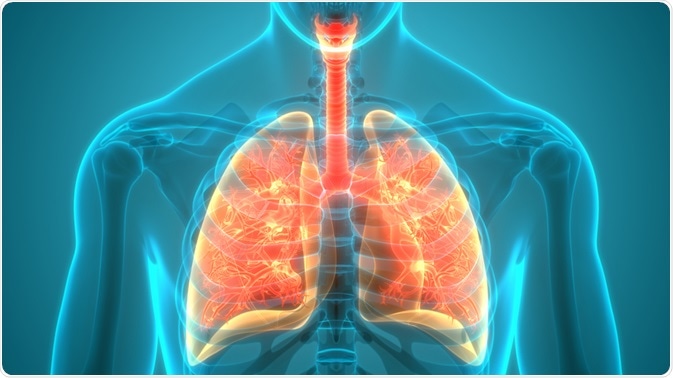Most people with sarcoidosis do not require treatment because the symptoms are not severe and usually subside spontaneously after some time.
However, some people need treatment to reduce the inflammation and related symptoms. Patients with nodules affecting the eyes, lungs, heart and nervous system are more likely to need treatment.
The aim of treatment is to relieve symptoms, improve organ function, minimize complications and control inflammation in the body. The duration of treatment depends on the individual case and can vary from a few weeks to a few years.
 Image Credit: Magic mine / Shutterstock.com
Image Credit: Magic mine / Shutterstock.com
Analgesics for sarcoidosis
The initial therapy is usually simple analgesic medication to relieve pain associated with the nodules or resulting joint pain.
Non-steroidal anti-inflammatory drugs (NSAIDs), such as aspirin or ibuprofen, offer an added benefit of anti-inflammatory action that may help to reduce the size or number of granulomas. Paracetamol can also offer a benefit in helping to ease the pain of the condition and control flare-ups.
Corticosteroids for sarcoidosis
The mainstay of treatment is oral corticosteroid medication, such as prednisolone, which is very effective at reducing inflammation in the body. This is usually taken daily at the beginning of treatment and the dose is gradually reduced and withdrawn over time as the symptoms improve.
There are also eye drops and ointments available, which can be applied topically to the eyes of patients that have granulomas affecting that area. This can be preferable as it reduces the systemic side effects of the medication, which can be significant.
Side effects may include:
- Weight gain
- Mood swings
- Increased risk of infection
- Increased risk of osteoporosis
- Insomnia
- Thinning of skin
Given these side effects, treatment with corticosteroid medication is usually limited to the shortest time possible, as this helps to reduce the inflammation that causes the condition.
Immunosuppressive medicines for sarcoidosis
Also known as cytotoxic medication, this second-line drug option can benefit patients with sarcoidosis as it helps to reduce the immune response of the body. Common drugs in this category include hydroxychloroquine, methotrexate, azathioprine and cyclophosphamide. Occasionally infliximab, thalidomide and tetracyclines may also be used.
These drugs can help in the treatment of sarcoidosis because the inhibited immune response pathways reduce the inflammation and, therefore, production of granulomas in the body.
However, they are reserved as second-line therapy for individuals that are unresponsive to corticosteroid medication as they are associated with severe side effects and a high risk of infection. If these medications are utilized, regular blood tests are required to monitor the effect on the body.
Sarcoidosis Diagnosis and Management | Restrictive Lung Disease | Pulmonology
Non-pharmacological treatment for sarcoidosis
In rare cases, transplant surgery may be required in the treatment of sarcoidosis. This is usually when there is significant damage and scarring to essential organs, such as the lungs or the heart. Given the high-risk nature of this procedure, it is reserved for the most severe cases that are not responsive to other treatments.
In addition to other treatments, there are some simple lifestyle changes that are associated with the improvement of symptoms and recovery. These alterations include:
- Stop smoking
- Avoid exposure to triggers (e.g. dust, chemicals, fumes, smoke, gases)
- Stay hydrated
- Exercise regularly
- Eat a nutritious diet.
References
Further Reading
Last Updated: Dec 23, 2022